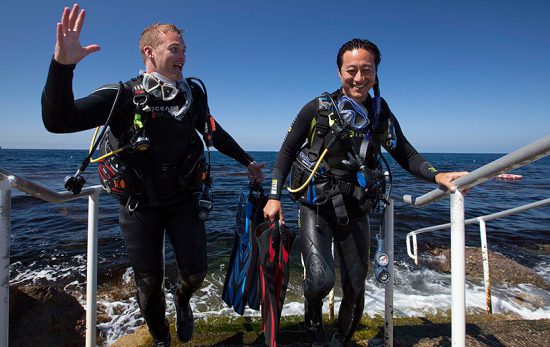Abby Harrison dreams big. 140 million miles big.
That’s the average distance between Earth and Mars, a distance 18-year-old Abby (also known as Astronaut Abby) aims to one day traverse as the first astronaut to Mars. Currently attending Wellesly College and working her way toward becoming a NASA astronaut, Abby also strives to discover more of this planet, where diving has become an avenue for that earthly exploration.
We spoke to Abby after the recent completion of her Rescue Diver course, to discuss her experiences as a PADI diver and the similarities between ocean and space exploration.
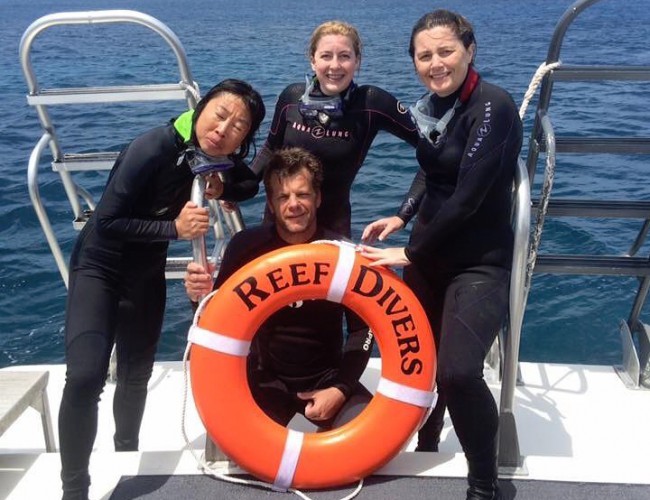
Describe your inspiration to become a PADI diver.
I originally began diving to strengthen my future application to become an astronaut. Scuba diving is often used for training for missions in space because of neutral buoyancy, which is the closest one can get to microgravity on earth. While it’s not a requirement to have experience in SCUBA to become an astronaut, it is recommended. My mother researched SCUBA certifications and discovered PADI to be a top organization to gain certification in. I started training as a PADI diver at age 16 in December of 2013 receiving my Open Water Diver certification and since then have advanced with both an Advanced Open Water Diver and Rescue Diver certification. It has been fun because my mom and I have received our certifications together. Scuba diving is an activity I see participating throughout my lifetime and I know it will be something my mom and I often do together even as I enter into my adult life.
How has your PADI training benefited you in your path to becoming an astronaut?
I am currently in my first year of college at Wellesley College in Massachusetts and have many years of college, graduate school and work experience before I apply for the NASA astronaut corps. It’s hard to know exactly how my PADI training will benefit my application to the NASA astronaut corps but along with many other things I am working on to build up my resume, I hope that it will give me an advantage. The competition to become a NASA astronaut is tough but this past year it has more than doubled with over 18,000 people applying for the 7-14 Astronaut Candidate slots that will be filled in 2017. By the time I apply to the NASA astronaut corps I will have many years of diving experience and I hope to be an expert diver. My goal is to gain a Master Diver certification and also have ample technical diving experience by the time of my application.
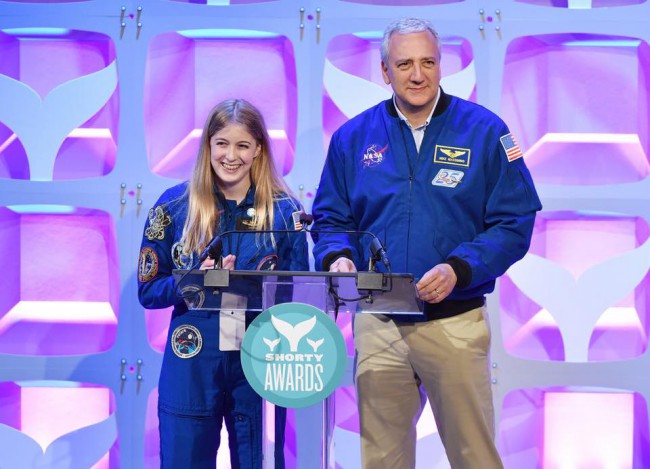
What do you see as the similarities between divers and astronauts?
Of course there are the obvious similarities- astronauts use diving as a way to train for microgravity. Neutral buoyancy is the closest simulation we have on Earth for microgravity! However, I think that the similarities between astronauts and divers go further. Astronauts and divers are both adventurers. They both travel into mediums that are incredibly alien to humanity with the goals of exploration and discovery.
What drives you to explore? Both in space and through diving.
It’s difficult to describe the desire to explore. It’s my opinion that exploration is part of what makes us human- it is ingrained deeply into our identity. For as long as I can remember I have been enthralled with the idea of discovering new things, seeing new sights, and going farther then we have ever gone before.
Where would you consider the “Mars” of the sea?
I would consider Deep Ocean diving to be the ‘Mars’ of the sea. Sending humans to Mars, landing them on the surface, and returning them safely back to Earth is an enormous challenge. It is the largest challenge we have yet to attempt in human space exploration. Similar to that, deep sea diving poses us incredible challenges (and incredible rewards).
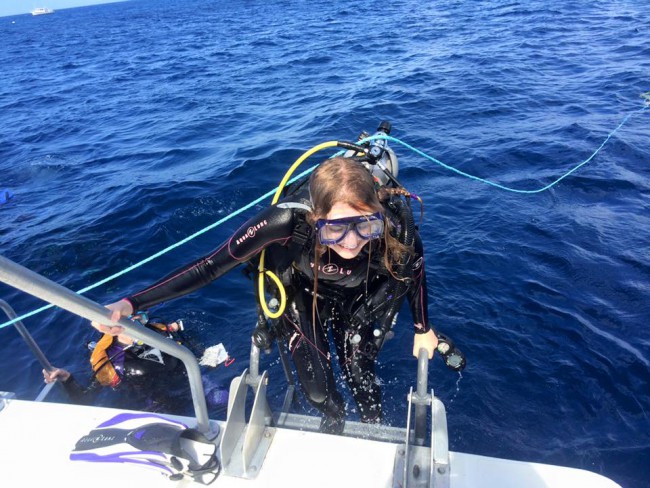
Describe your experience with the Rescue Diver course.
Rescue Diver is my third PADI certification but I think that it was the most fun to work on. I had a fantastic instructor, Saint Paul Fire Captain Ed Nelson, but I also really enjoyed the content of the Rescue Diver course. Learning knowledge and skills that might someday save some ones life while diving gave me a great sense of purpose and ambition. My favorite skill that we practiced was learning how to transport and care for a non-breathing victim on the waters surface. I definitely believe the Rescue Diver certification helps make people better divers. I have become much more aware of my own approach to diving, equipment and safety as well as others I am diving with. I am thrilled to have accomplished this certification and feel that it has helped advance my dive skills tremendously.
Where was your first dive, and what was this experience like?
My first dive was off the coast of Costa Rica at age 16. It was on Christmas Eve 2013. My mom and I were both diving for the first time. I have strong memories of how excited and also a little bit apprehensive I was before the dive. Afterwards I couldn’t stop smiling. We finished our open water certification on Christmas Day 2013. This was an incredible way to spend the holiday.
What has been the most memorable dive of your life?
The most memorable dive of my life was fairly recent, just a couple months ago. I was lake diving for the first time in Minnesota working on my Advanced Open Water certification. My first dive was absolutely miserable. It was raining, cloudy, cold, and the visibility was terrible. The next day, I went for another dive, expecting it to be the same. Instead, it was fantastic. The weather was still bad, the water still cold, but this time the visibility was much better (we went to a quarry to dive and it was very different than the lake the day before). We dove through an underwater forest and visited an old wrecked boat. I remember this dive so vividly, probably because of the intense contrast between the two days. While diving in the Caribbean is much warmer and the sites are incredibly beautiful, this cold water dive remains at the top of my list of memories.
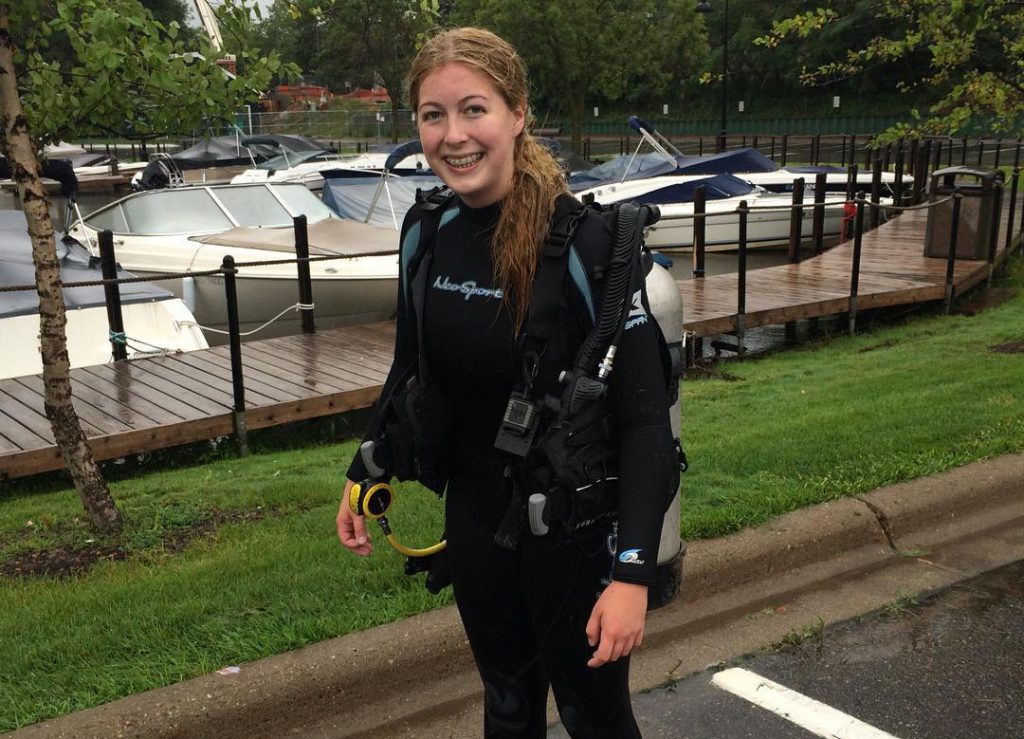
Do you have any interest in becoming a PADI Instructor?
Absolutely! I love the idea of being able to give back to the PADI community by teaching others. I also think that becoming an instructor is a really great way to continue to find new challenges in diving!
What does PADI mean to you?
To me, PADI can be summarized in one word: adventure. PADI diving opens up a whole new world of exploration and discovery. It’s often said that the two greatest unknowns left to be explored are the Earth’s oceans, and outer space. PADI is equipping countless people with the ability to take steps forward in both of those areas.
What words of advice and encouragement would you give to people thinking of becoming PADI divers?
The biggest piece of advice that I could give anyone looking at becoming a PADI diver is to just go for it. Take a leap of faith. Sometimes it can be scary or nerve-wrecking to start something like diving, but once you get past the anxiety or nerves, diving will help you to have some of the best adventures you can imagine. Remember that everyone who dives was once a beginner- you don’t need to worry about looking silly, not knowing what to do, or being nervous or scared in front of other divers because they were all in that same position at one point!
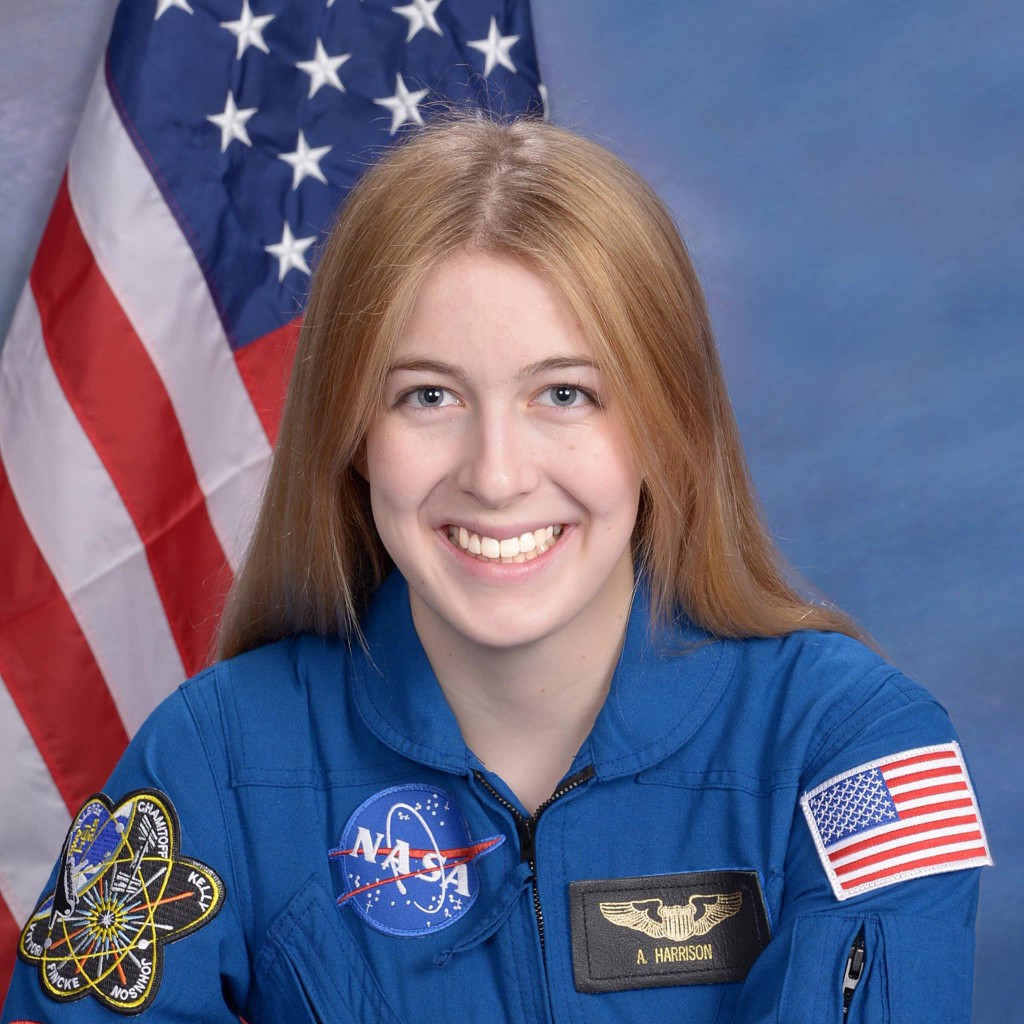
Where can readers follow your adventures?
I am available primarily on Facebook, Twitter and Instagram and on my website www.astronautabby.com and am always happy to answer questions about space exploration. I hope that everyone reading this will join my community of space and STEM enthusiasts. I also started a nonprofit this past year called The Mars Generation. Their website is also full of great articles and information and you can join in on their Facebook group, Facebook page and Twitter to be a part of a community of people who are passionate about space exploration, science and dreaming big. Go to TheMarsGeneration.org for more information and to connect with their social media channels.
